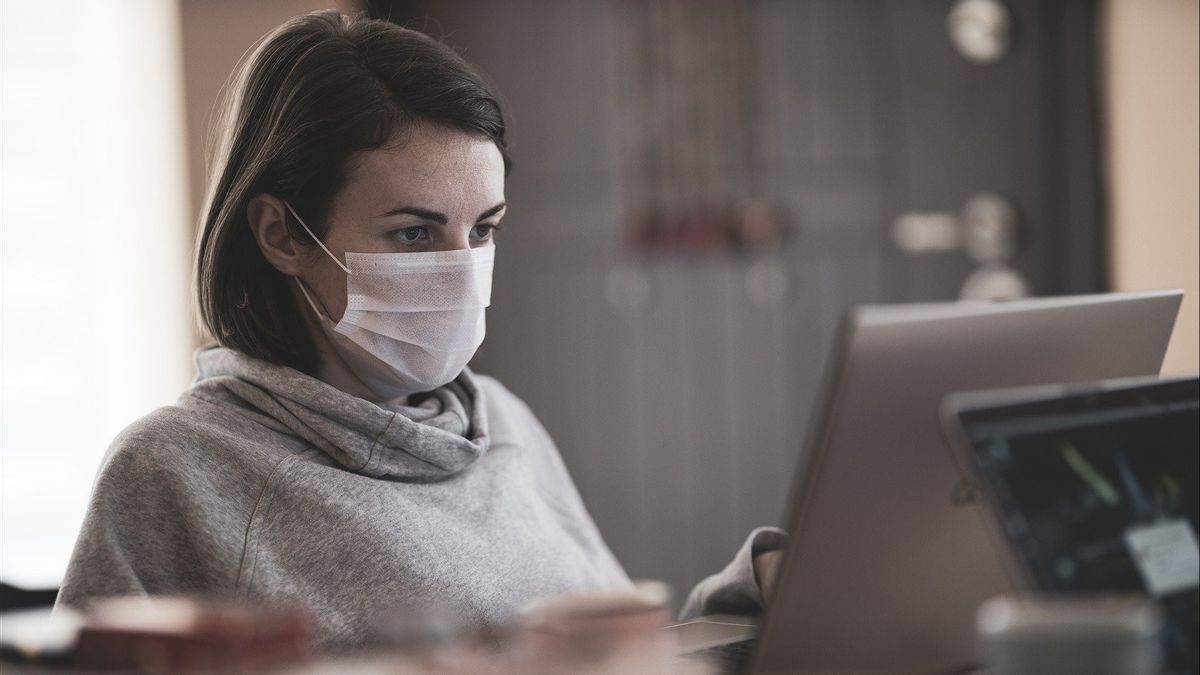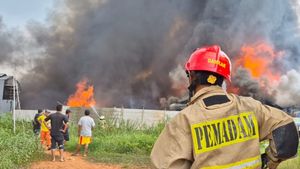JAKARTA - To reduce the burden on hospitals amid the recent increase in COVID-19 cases, patients who have tested positive and have no symptoms or have mild symptoms are asked to self-isolate at home.
Moreover, currently many medical personnel are experiencing fatigue due to the large number of positive COVID-19 patients, including the COVID-19 Emergency Hospital (RSDC) Wisma Atlet Kemayoran.
"We need a mitigation plan to keep people from falling sick. If people don't get sick, the hospital capacity will not be full so that our health workers don't get tired of treating patients," said Internal Medicine Specialist & Internal Medicine Consultant RSDC Wisma Atlet, Andi Khomeini Takdir who quoted from KPCPEN's written broadcast, Wednesday, June 30.
According to him, the public should not focus and blame the COVID-19 variant which has caused the spread of this virus in the community to become more massive. The key to prevention is to keep wearing a mask.
"Two-layer masks according to the Centers for Disease Control and Prevention (CDC) research are said to be able to increase protection from 60-80 percent to 90 percent," he said.
This new knowledge, continued Andi, must be made a habit. When people can be disciplined in following health protocols, the COVID-19 pandemic can be controlled.
While related to self-isolation, he said, people need to know how to do it properly so that their health can recover quickly.
Andi explained that when self-isolating at home, patients must first wear masks. Second, the rooms must be separate and make sure the window of the patient's self-isolation room is open.
In addition, Andi also emphasized the importance of eating balanced nutrition when positive COVID-19 patients undergo self-isolation at home.
"In the hospital, there are doctors and nurses who support. When at home, the family must be a supporter so that the patient's appetite is maintained," he said.
Next, Andi reminded patients who are self-isolating not to self-diagnose. "If possible, you should continue to consult a doctor. If there are symptoms that are very severe, it is necessary to contact a doctor," he said.
Previously reported, Spokesperson for the COVID-19 Task Force, Wiku Adisasmito, said that not everyone who was confirmed positive had to receive treatment at a COVID-19 referral hospital.
This was disclosed by Wiku in response to the trend of occupancy of hospital beds in various regions until treatment capacity was running low.
Wiku said, when capacity runs low, there needs to be good management regarding the proper distribution of COVID-19 patients based on symptoms, so that the occupancy of beds in hospitals can be controlled. Provide treatment rooms at the hospital for COVID-19 patients with moderate and severe symptoms.
"Not all COVID-19 patients have to go to the hospital for further treatment. Patients with severe and moderate symptoms who have the right to receive treatment, both isolation and intensive care in hospitals," said Wiku in a written statement, quoted Friday, June 25.
Based on data compiled by the World Health Organization (WHO), the majority of COVID-19 patients in the world have mild to moderate symptoms with the same percentage, each of which is 40 percent.
Similarly, the Director of Medical, Nursing, and Supporting Services at Fatmawati Loli Simanjuntak Hospital also asked people who have tested positive for COVID-19 not to rush and panic to go to the hospital for treatment.
"There is COVID without symptoms and with symptoms. If the PCR is positive or the antigen swab is positive but there are no symptoms, it is not treated at the hospital, so just stay at home. Then the second one, there are symptoms of COVID but the symptoms are mild," Loli said at the conference press broadcast on the Indonesian Ministry of Health's YouTube, Thursday, June 24.
Meanwhile, for people who are tested positive for COVID-19 but have comorbid diseases with decreased oxygen saturation, they are required to undergo treatment in a hospital. Likewise, for those who have severe symptoms.
"It means high breathing, breathing above 24, saturation below 95, pneumonia accompanied by comorbidities. In terms of age, it is also under 60 years old or above 60 years old," he said.
The English, Chinese, Japanese, Arabic, and French versions are automatically generated by the AI. So there may still be inaccuracies in translating, please always see Indonesian as our main language. (system supported by DigitalSiber.id)













